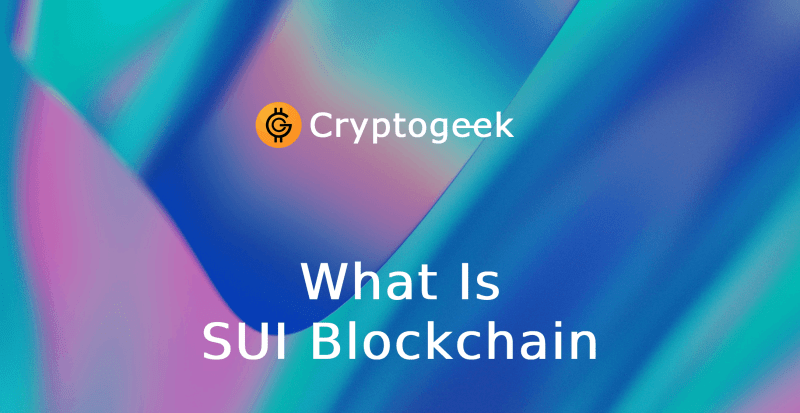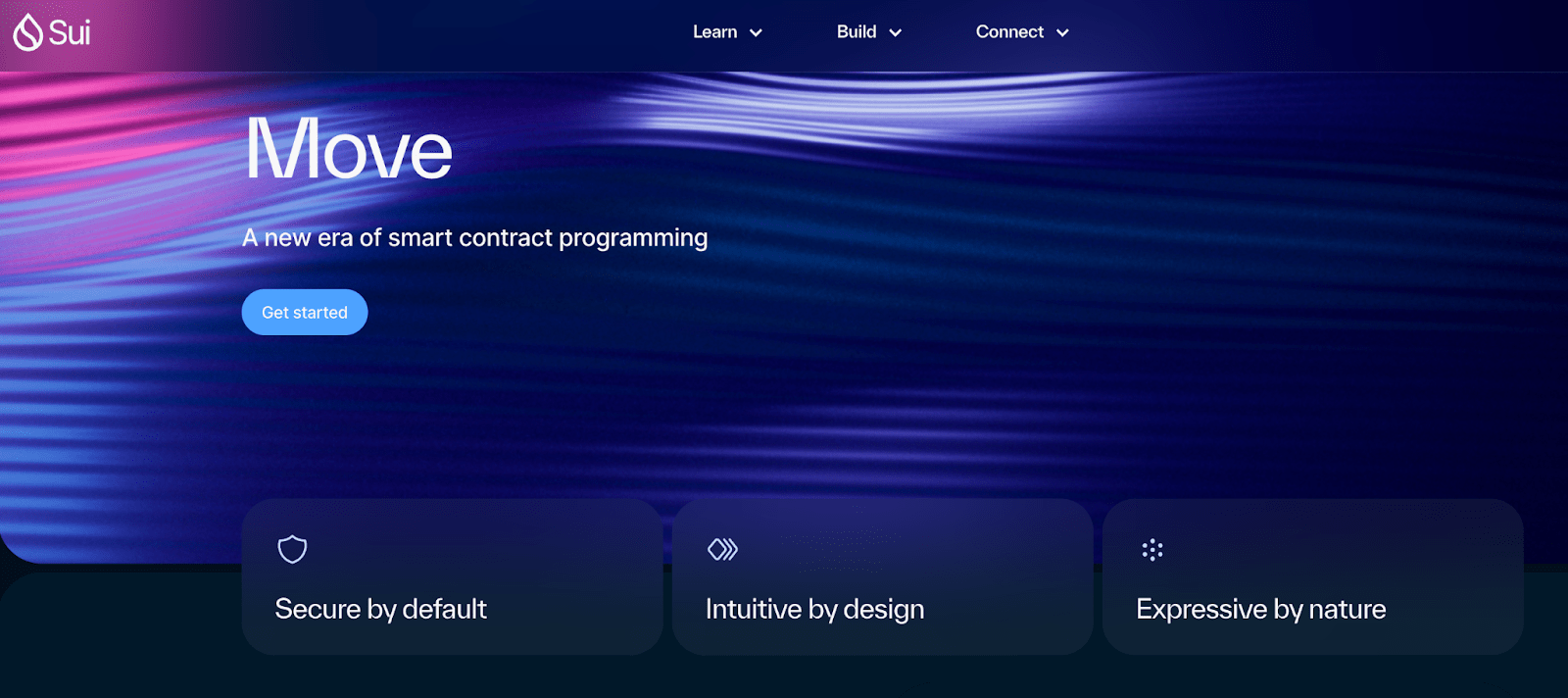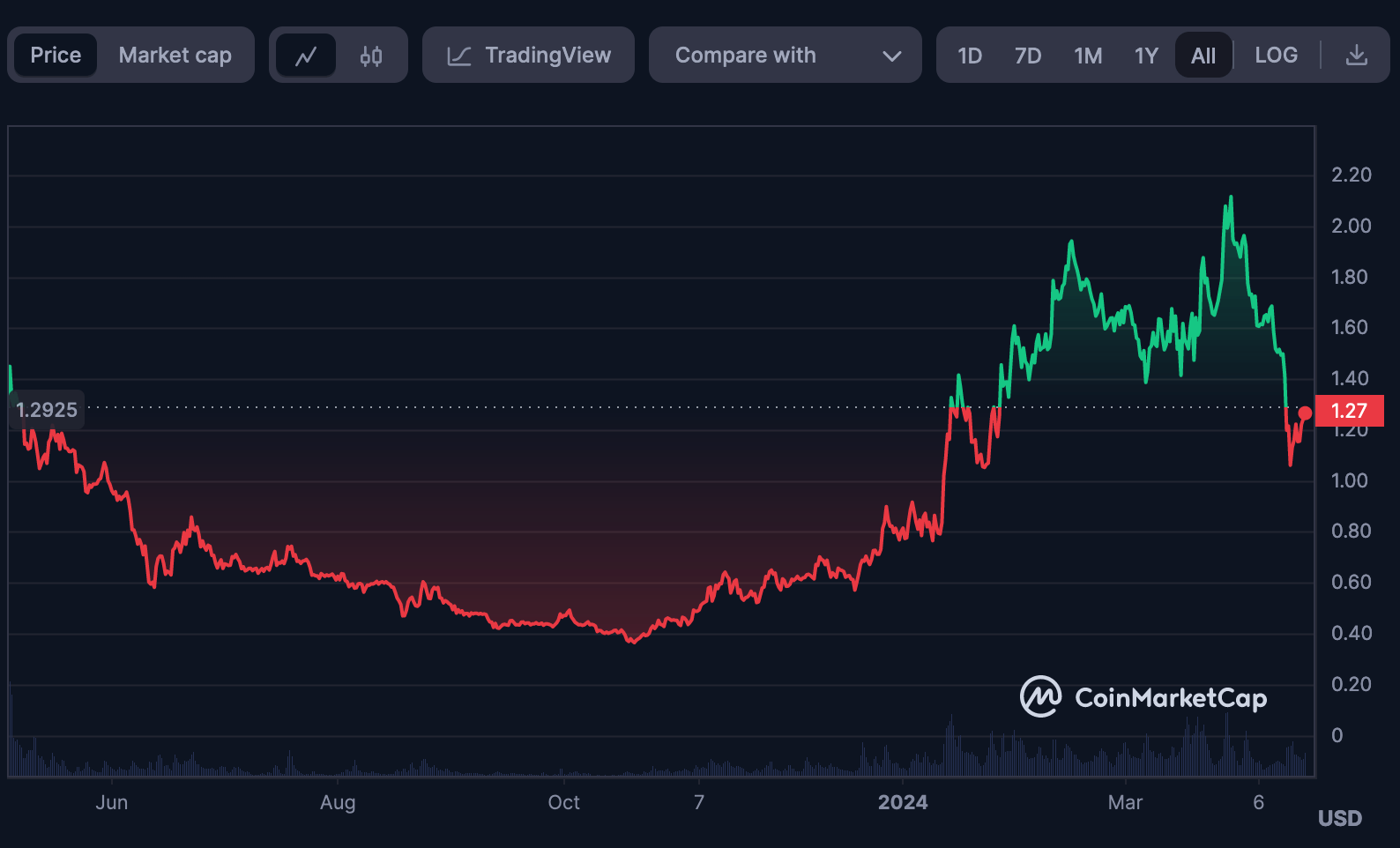What Is SUI Blockchain? A Full Overview


Ethereum has brought about a significant revolution in the blockchain sector. Prior to Ethereum's emergence, blockchains served primarily as ledgers for financial transactions in the realm of cryptocurrencies. However, Ethereum broadened the horizons by introducing blockchain applications beyond simple ledger functions. It enabled the hosting of decentralized applications (dApps), execution of smart contracts, and utilization for various purposes such as tracking supply chain data, managing healthcare records, facilitating voting processes, and more.
Nonetheless, Ethereum faces inherent challenges that have hindered its widespread adoption, resulting in issues related to speed and cost efficiency. While Ethereum's development team strives to resolve these issues, former employees and other developers are launching new ambitious projects similar to Ethereum, often referred to as "Ethereum killers." Despite this title, none of these projects has managed to surpass Ethereum's dominance.
This article delves into one of the latest contenders in the "Ethereum killer" category, a forward-looking blockchain project named Sui. Through this article, readers will gain insights into the essence of Sui, its operational mechanisms, roadmap, the role of the Sui token, and more.
Contents
What Is the Sui Ecosystem?
Sui represents a blockchain-based ecosystem renowned for its ability to process transactions swiftly, support dApps based on the Move programming language, and execute smart contracts efficiently. The platform aims to broaden the reach of the web3 space to include a broader audience, commonly referred to as the "next billion users" per the Sui team's vision.
Operating on its proprietary Layer-1 blockchain engineered for unrivaled scalability, Sui emphasizes the near-instantaneous completion of transactions as a primary objective. The platform's exceptional speed and minimal fees make it particularly suitable for diverse sectors such as gaming, finance, real-time applications, and nearly any other service imaginable.

Sui leverages smart contracts programmed in the Move language, chosen for its compatibility with fast, secure, and cost-effective transactions, aligning seamlessly with the platform's objectives. Move empowers developers with a versatile tool set that maintains transaction accuracy while offering flexibility and ease of use.
The Sui team has devised a unique strategy to address the longstanding challenge known as the blockchain trilemma. For those unfamiliar with this concept, a brief overview is warranted given its pivotal importance in the blockchain landscape.
The blockchain trilemma encapsulates the dilemma of simultaneously upholding decentralization, scalability, and security within blockchain networks. Typically, optimizing one of these aspects comes at the expense of the other two, presenting a complex balancing act in blockchain development and deployment.
Decentralization involves increasing the number of autonomous nodes, enhancing the network's self-reliance. However, this can lead to slower system performance as additional validators require more time for transaction validation.
Scalability is pivotal for network efficiency, ensuring swift operations. Typically, achieving scalability requires a trade-off between decentralization and optimizing data flow methods for improved flexibility.
Centralization introduces new vulnerabilities, prioritizing network speed at the expense of security. Many developers strive to strike a balance between these three aspects in their projects, and Sui has made significant strides in approaching this equilibrium.
Launched in 2021 by Mysten Labs, a company founded by engineers with a Meta background including Evan Cheng, Adeniyi Abiodun, Sam Blackshear, George Danezis, and Kostas Chalkias, Sui garnered substantial funding through fundraising efforts and unveiled a testnet in 2022.
dApps developed on Sui incorporate a zkLogin feature facilitating web3 realm connectivity via familiar credentials like those used for Google or Facebook. These credentials generate a JSON web token that undergoes encryption, transforming into a zero-knowledge proof (ZKP) for secure user verification without exposing original credentials online. This feature supports third-party hardware wallets and wallets utilizing mnemonic phrases for recovery, making Sui user-friendly for newcomers and experienced crypto enthusiasts alike.
Roadmap of Sui
As of April 2024, Sui remains dedicated to ongoing enhancements, with an ambitious roadmap for the remainder of the year. The primary objective is to streamline Sui for universal accessibility, catering to individuals ranging from cryptocurrency novices to seasoned developers. The team aims to refine the Move language for improved readability and coding efficiency.

Additionally, efforts are underway to develop a protocol for private NFT transactions leveraging zero-knowledge proofs. This initiative targets the privacy concerns prevalent in most NFT marketplaces, addressing potential misuse scenarios.
Furthermore, the development team is actively establishing a bridge between Sui and Ethereum to enhance interoperability between Sui and one of the prominent players in the blockchain industry.
How Does Sui Work?
Sui functions through the utilization of the Proof-of-Stake (PoS) consensus mechanism, where transaction validation is conducted by nodes within a Byzantine fault-tolerant system. The system's rapid processing capabilities are enhanced by employing transaction parallelization technology. The structure of Sui's data is object-oriented, enabling efficient operations and facilitating simultaneous "parallel agreement" for various transaction types.
While the Proof-of-Stake concept is commonly employed across blockchain platforms, Sui distinguishes itself with a unique transaction processing methodology. Instead of the traditional sequential validation method where all nodes validate each transaction, Sui divides nodes into multiple groups. Each group is tasked with validating distinct sets of data concurrently. This approach, supported by object-oriented models, ensures the independence of validated transactions and is deemed secure. This innovative tactic allows Sui to engage in what the team terms "vertical scaling."
Let's dissect the transaction process on Sui:
- A newly generated transaction is broadcasted, visible to all validators.
- Validators then cast their votes on the transaction's validity, with vote weight determined by their stake levels.
- The outcome of the Byzantine-resistant majority's vote is disseminated to validators in the form of a certificate.
Furthermore, Sui enhances transaction speed through the application of object model principles to ownership classifications within its ecosystem. Sui categorizes ownership into three distinct types:
- Ownership by an address (similar to ownership of tokens, including NFTs)
- Ownership by another object (e.g., when a token is a component of another token)
- Shared ownership (e.g., as seen in AMM pools)
Transactions associated with the 'owned' ownership types undergo swift execution without the need for sequential blockchain additions. This rapid processing capability is particularly advantageous for applications requiring a "single writer" approach, such as gaming applications, social networks, messaging platforms, NFT marketplaces, and identity verification systems. By leveraging Sui, the web3 iterations of these applications can attain operational speeds akin to those observed in web 2.0 applications.
Conversely, transactions involving 'shared' data follow a conventional processing route, necessitating sequential blockchain additions to ensure secure and accurate record-keeping.
The Sui Token and Sui Airdrop
The Sui token (SUI) is utilized for paying transaction gas fees on the Sui network. This token entered the market in 2023 and has since achieved a significant market capitalization. By April 2024, the token's market cap had surpassed $1.6 billion, ranking it as the 57th largest in the crypto industry. The total supply of the Sui token is limited to 10 billion units.

The token is easily accessible on various trading platforms such as Binance, OKX, Kraken, Crypto.com, Coinbase, Bybit, KuCoin, Bithumb, Gate.io, Upbit, HTX, and other exchanges.
Beyond transaction payments, the Sui token serves to reward validators and cover their expenses for blockchain data storage. These funds are paid upfront and collected in the Sui storage fund for future distribution as rewards.
The Sui Foundation has declared its intention to refrain from conducting any airdrops.
Conclusion
Sui stands as a promising Ethereum competitor. While it is improbable that Ethereum will be surpassed in the near future, projects like Sui possess the potential to emerge as significant players in the crypto domain.
The accomplished team of engineers, previously affiliated with Meta, has developed an ecosystem aimed at addressing the blockchain trilemma and extending the benefits of blockchain technology to millions. Given the project's early stage, its ultimate trajectory remains uncertain. Nevertheless, as of April 2024, Sui ranks among the most prosperous new blockchain ventures.

I migliori tutorial
-
Что такое хард-форк?Jul 27, 2020
-
Стейкинг на Ethereum 2.0 и его основные особенностиAug 01, 2020
-
Инновации на основе блокчейна в сфере энергетикиAug 03, 2020






Qui non ci sono ancora commenti. Sarai il primo!